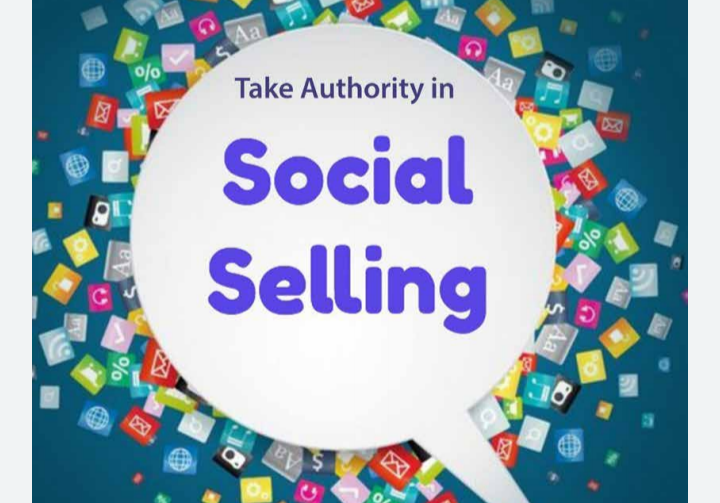By Robert Gonye
“IF you are willing to go where your colleagues are not, you will get the deals they won’t get.”
With nearly all of the country’s population now active on social media, social selling is more relevant than ever. Sales leaders who’d rather be ahead of the curve than chasing it would be smart to systematise the practice in their sales forces because it’s more of an exception than the rule, social selling has become a differentiator for sales organisations that adopt it early. What Is Social Selling?Social selling is the process of researching, connecting, and interacting with prospects and customers on social media networks notably Twitter and LinkedIn, but others certainly fit the bill. Through commenting on, liking, and sharing prospects’ and customers’ posts, salespeople create relationships with buyers and boost their credibility by taking an interest in what they’re interested in.Instead of a hard-closing tactic, social selling more closely resembles lead nurturing. Therefore, social selling isn’t for reps seeking quick wins or a silver bullet. Salespeople have to be willing to put in the time and effort to engage with their target buyers on an ongoing basis, and even then, there is no guarantee that their efforts will pay off.
The Power of Social Selling
Data and research show that those who play the long game reap the rewards. Research shows that top performing sales executives will close 50% more deals than their peers, hence social networking platforms are “very important” to a sales person’s success. Additionally, sales teams using social selling experience almost three times pipeline volume than those who do not.
Social Selling Tips
There are several steps teams can take to get started with social selling:
1. Optimize their social media profiles
If you begin your social selling initiative in earnest with an outdated or incomplete profile, your effort will likely be wasted.
2. Join LinkedIn groups and other relevant forums
Check out the profiles of your customers and prospects. What groups are they a member of, and which do they participate in? Find out, and then follow suit. It’s also a good idea to join groups on larger industry trends so you can stay informed of the challenges your buyers are dealing with. If you have something valuable to contribute to a discussion, do it. However never use groups as an opportunity to hawk your products or services. Sales comments are unsolicited, and will annoy group members just as a cold call or email would. Advance the conversation in a meaningful way, or just sit back and observe.
3. Setup social listening alerts
Google alerts or a social listening tool are available to set up notifications about when your prospects or customers experience a trigger event, or post a possible sales opening. For example, if a prospect mentions a problem they’re having that you can address, an alert can enable you to quickly get involved in the conversation with a helpful piece of content or insight. Similarly, if a potential buyer’s company hires a new CEO or expands their business, you should comment on the trigger event as soon as possible to get on their radar.
4. Share content to build your credibility
One of the best ways to build credibility and engagement on social media is to share compelling content. When you read any interesting articles related to your prospect’s industry, you can easily share them, even better yet a thought-provoking study that could be a good conversation-starter. Sharing engaging content with your social networks is a great way to provide value to others, which can help you build trust and credibility.
5. Pay attention to the comments section
If you see posts in your feed that have high engagement, peruse the comments section to join the conversation. By reading the comments your prospects are leaving, you can better understand their point of view. Reading the comments will also give you an idea of what kind of content your prospects enjoy and engage with, which can help you decide what kind of content to share.
6. Keep an eye on customer care
More buyers are taking to social media and messaging platforms to interact with businesses. As you engage on social media platforms, keep an eye on what buyers and consumers are saying about your company and your offerings especially in the event a customer is dissatisfied. Not only can you give your customer care teams a heads up, but you will be more prepared to talk to prospects who may have seen disgruntled customer content.
7. Be consistent
Prowling on social media every day is probably not the best use of your time. However, for maximum engagement, you should aim to post and engage consistently. The key is to have three or four interactions within 10-12 days, which shows professional persistence without overwhelming your prospect.
8. Track engagement
How often do you look at your social media engagement? Social media engagement includes likes, comments, and shares, and higher engagement is an indication that a piece of content truly resonated with your audience. By paying attention to what content gets the most engagement with your audience, you can see what content or conversation topics are of interest to your prospects, which is a good indication that you should share more about that topic.
9. Know when to take your connections offline
If you want to land the sale, eventually you’ll need to take the social media connections you make offline. After making a solid connection with a prospect on social media, offer to have a phone call conversation. This will allow you to learn more about the prospect’s current challenge or situation which can help you gain the clarity you need to land the sale. The norm is after a series of interactions with a prospect that fits an ideal customer profile or vertical market on social media they will seek out the contact’s email address to setup a call and continue the conversation off of social media which is the ultimate level of growing the business leads.I trust this has been helpful.
Robert Gonye is a Business Growth Influencer. He writes in his personal capacity. Comments and views: Robert@realgrowthsolutions.netThe views given herein are solely for information purposes; they are guidelines and suggestions and are not guaranteed to work in any particular way.
This article was first published in the April Issue of The Entrepreneurial Magazine.








